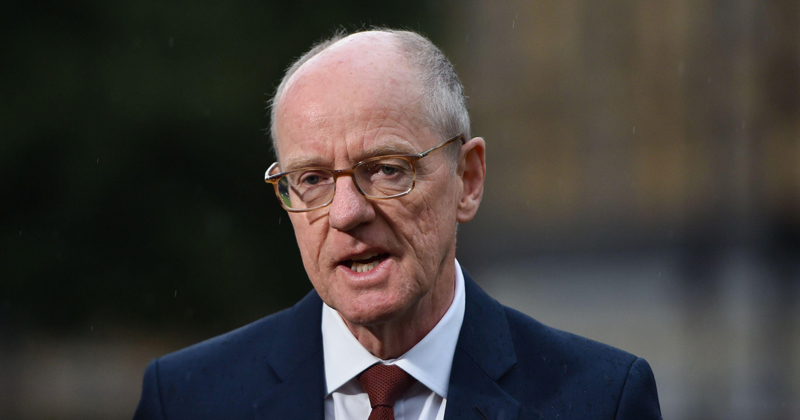Labour’s plan to water down academy freedoms is an “act of vandalism” that could cut 20,000 teachers’ pay, Conservatives have warned amid growing criticism of the schools bill to be debated by MPs today.
Sir Nick Gibb, the former schools minister, this week urged Labour to abandon plans “driven by ideological hostility to academies”
While the Tory veteran’s criticism is not unexpected, he is just the latest to publicly raise concerns over proposals set out in the children’s wellbeing and schools bill.
The bill will make all academies follow the national curriculum, allow councils to open schools again and end the automatic academisation of failing schools.
Trust bosses have already voiced their misgivings, with national newspapers also starting to criticise the government’s academy plans. For instance, the Economist ran a piece headlined: ‘Labour lacks good ideas for improving Britain’s schools’.
The criticism comes as the bill is due to be debated in parliament this afternoon.
Reforms risk league table progress, says Gibb
England’s pupils have risen up international league tables in recent years, including becoming the “best in the West” for reading.
Gibb, writing for the Telegraph, said Labour would “reverse some of the most important elements” of the reforms he believes are behind the rise.
He said education secretary Bridget Phillipson has “clearly been hanging out with the wrong crowd. Her bill sides firmly with the ‘progressivist’ approach promoted for years by teaching unions and many university education faculties.”
The bill will also force academies to follow national pay scales for teachers.
“For many teachers in academies who are paid above those rates this could mean less pay in the long run,” Gibb claimed.
He also criticised giving councils the power to force schools to expand and stop ‘good’ schools from growing if it “presents a competitive challenge to weaker schools in the area”, and the ending of the free schools programme.
“Rather than build on this legacy, in the way that the Blair government built on previous Conservative reforms, Phillipson has been clear that there will be no new free schools created while she’s in post.”
‘An act of vandalism’
But the “most damaging aspect” of Labour’s reforms is scrapping Ofsted headline grades and not automatically converting failing schools into academies.
“This policy has turned around scores of schools that had been failing for decades,” he added.
He said the policy was an “act of vandalism, driven by ideological hostility to academies and a failure to learn lessons from cognitive science or the best performing countries.
Phillipson has said the bill will deliver a “child-centred government, with better protections for young people and real join up between children’s social care, schools and local services.
“Alongside further measures to drive high and rising standards in our schools, this bill will deliver on this government’s plan for change, so that all children, whatever their circumstances, can achieve and thrive.”
Labour is trying to resolve systemic problems, including child poverty, stubbornly-high school absence, rising numbers of children educated outside of school, the special needs crisis and teacher recruitment woes.
But reformers are concerned the changes to academies – which for a decade have been the government’s preferred enablers of school improvement – could hit standards.
Caution over PISA results
Asked about rising standards in international league tables last year, the government’s standards tsar Sir Kevan Collins sounded caution.
“Be really careful with PISA (Programme for International Student Assessment) data. Our raw scores haven’t changed that much. We’ve got practice we should be proud of, but we’ve also got pockets that we should be ashamed of.
“It’s absolutely unacceptable that, if you’re a boy from a working-class community in the north east or north west, your prospects are so much worse.”
Also, despite rising standards, PISA 2022 found pupils in England are less happy than their counterparts elsewhere.
Around half of pupils in England (48 per cent) rated their overall life satisfaction as 7 or more (out of 10), compared to 61 per cent across other countries.
Tories table bill amendment
The Conservative front bench will this afternoon seek to amend the bill to decline to give it a second reading, “because it undermines the long-standing combination of school freedom and accountability that has led to educational standards rising in England”.
The bill also “effectively abolishes academy freedoms which have been integral to that success and is regressive in approach, leading to worse outcomes for pupils”.
Ending freedom over pay and conditions will also make it “harder to attract and retain good teachers”, they said.
The party said its analysis had found that just those academies already known to be using pay freedoms employed over 20,000 teachers.
Shadow minister Neil O’Brien said Labour’s approach “will lead to pay cuts for good teachers, ends the vital requirement to turn failing schools over to new management, and will enable local authorities to share out pupils from good schools to prop up poor ones”.











